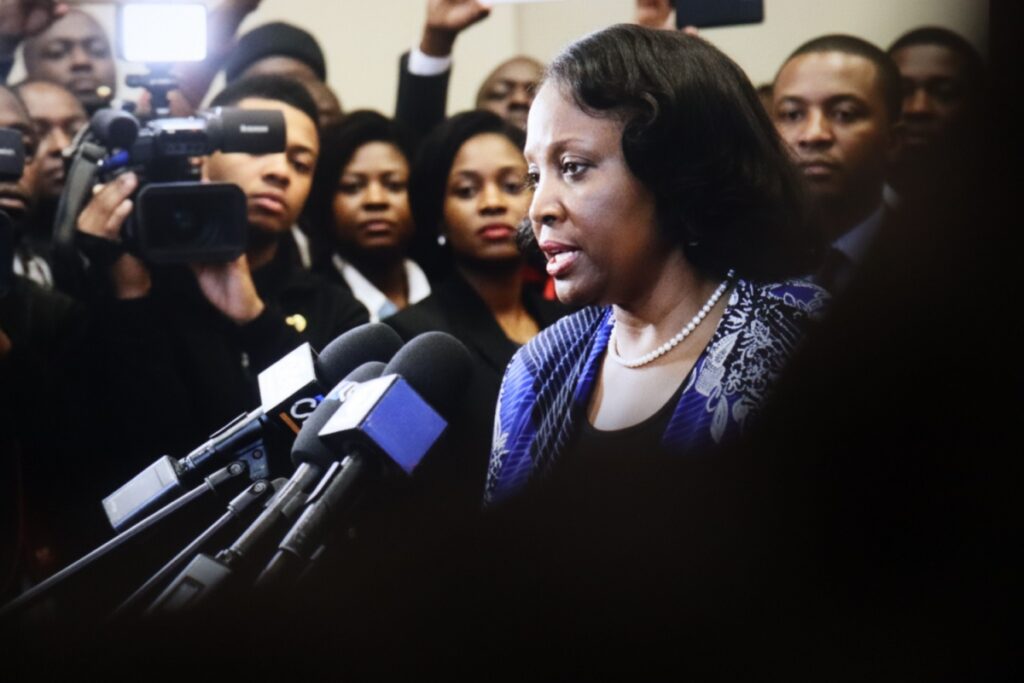Federal Court Blocks Dismissal
A federal court has ruled that Federal Reserve Governor Lisa Cook can remain in her post while she challenges President Donald Trump’s attempt to remove her. U.S. District Judge Jia Cobb, appointed by President Joe Biden, granted a preliminary injunction, saying the administration’s arguments for dismissal failed to establish valid grounds. Under the Federal Reserve Act, governors may only be removed “for cause,” a standard historically interpreted as misconduct or incapacity arising during their service.
The court determined that Cook was not given due process, as she received no notice of the charges nor an opportunity to respond before her removal was announced. Judge Cobb emphasized that procedural fairness is central to maintaining the integrity of independent agencies such as the Federal Reserve.
The injunction means Cook will continue to serve on the Fed’s Board of Governors and will take part in the upcoming Federal Open Market Committee (FOMC) meeting on September 16–17, where policymakers are expected to approve a quarter-point interest rate cut. The decision preserves stability in the Fed’s operations during a critical period of economic uncertainty.
Legal And Institutional Implications
The case represents an unprecedented move by a president to oust a sitting Federal Reserve governor. No such removal attempt has occurred in the institution’s history, making the litigation a test case for defining the limits of presidential authority over the central bank.
Legal experts note that if “cause” is interpreted broadly enough to include conduct prior to a governor’s tenure, it could effectively give the White House sweeping discretion to replace governors for political reasons. Such a precedent, critics argue, would undermine the Fed’s operational independence, which has been a cornerstone of U.S. monetary stability since the central bank’s founding in 1913.
Cook’s legal team argues that the dismissal effort not only lacks legal foundation but also threatens to erode confidence in the Fed as a politically neutral body. They stress that the independence of monetary policy is vital at a time when inflation, interest rates, and global market volatility remain high on the public agenda.
At the same time, the Justice Department has opened a criminal investigation into alleged mortgage fraud linked to Cook, following referrals from the Federal Housing Finance Agency (FHFA) and subpoenas issued in Georgia and Michigan. Investigators are examining whether Cook’s prior mortgage applications contained misstatements. Her attorneys counter that the issue was fully disclosed during her 2022 Senate confirmation and bears no relevance to her current duties.
Political Reactions And Next Steps
The ruling has set the stage for a broader political and legal confrontation. The Trump administration has indicated it will appeal the injunction, signaling a determination to press ahead with the effort to remove Cook. The administration maintains that governors should be held to the highest ethical standards and that pre-tenure conduct can constitute grounds for dismissal.
Opponents of the removal, however, warn that accepting such reasoning could open the door for presidents to target governors for partisan motives, weakening the Fed’s credibility in financial markets. Members of Congress from both parties have expressed concern about preserving the Fed’s independence, though responses have broken along political lines.
Cook herself has vigorously denied wrongdoing. She maintains that all relevant information about her financial history was provided to the Senate during the confirmation process and described the allegations as politically motivated. Supporters highlight that Cook, the first Black woman to serve as a Federal Reserve governor, has built a career focused on economic research, innovation policy, and financial inclusion.
Analysts caution that the outcome of the case could influence not only Cook’s future but also the structure of central bank governance in the United States. If the courts ultimately side with Trump, presidents could claim new authority to reshape the Fed board more directly, altering the balance between elected officials and independent regulators.
Potential Supreme Court Test
The litigation, known informally as Cook v. Trump may eventually reach the Supreme Court, where justices could be asked to rule on the constitutional boundaries of presidential power over the Federal Reserve. A high-court decision would have far-reaching implications for how independent agencies function in the broader U.S. government system.
For now, Judge Cobb’s injunction ensures that Cook remains part of the Fed as it navigates a delicate moment for the U.S. economy. With inflation slowing but still above the central bank’s 2% target, and with financial markets watching closely, the stability of the Fed’s leadership is viewed as critical.
Observers note that this case blends legal, political, and economic dimensions in ways rarely seen in American governance. It places the spotlight on the intersection between presidential authority and institutional independence, raising questions that extend beyond monetary policy to the structure of democracy itself.


